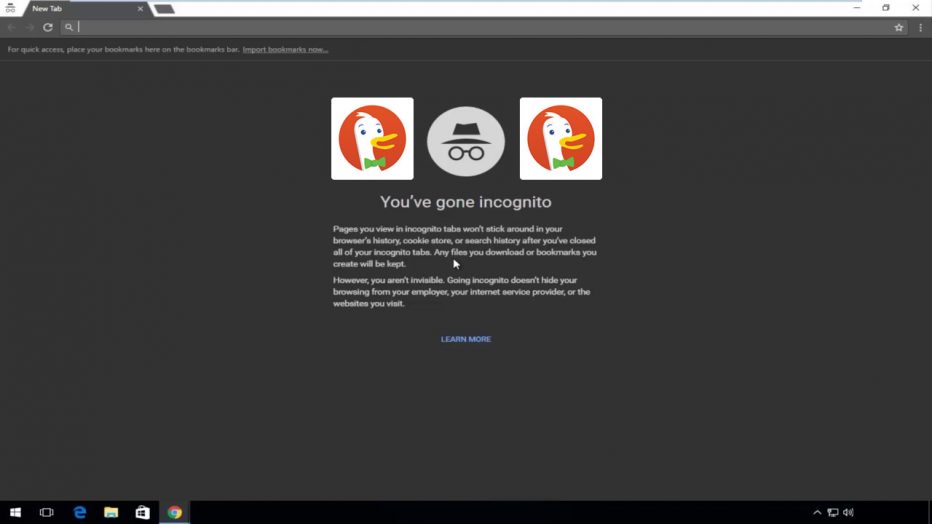Google’s Incognito Mode shows Personalised Search Results
Jessica Williams | Last Updated:

The first privacy measure to which most Google Chrome users is the browser’s incognito mode. It may be, however, that this method doesn’t stop your browsing from being tracked at all.
DuckDuckGo, a privacy-oriented search engine, conducted a study that levels claiming that, even in incognito mode and while the user is not logged to any Google account, Google personalises search results based on tracked data.
Supposedly, this mode should only retain information about your downloads and bookmarks — every other aspect of your activity would be private, both to other people using the same device and to Chrome itself. Personalisation aims to make results more convenient all around, but is seen by some users as a threat to privacy.
While browsing privately, the hypothesis was that there should be no “filter bubble”. This means that no data should be manipulated to cater results to a perceived profile — then, results should be shown as if you were “anyone”. Ultimately, given the same search and all else controlled, results should be about the same for two people.
So when the researchers asked 87 US-based volunteers to search for “gun control”, “immigration” and “vaccinations”, in this order and at a specified time and date, both in incognito mode and in normal browsing mode, they expected everyone to see more or less the same results in incognito and personalised results in normal mode.
This was not what happened.
- 68%, 57%, and 92% of the volunteers had unique results for each of the keywords in incognito mode, respectively;
- 59%, 63%, and 92% had unique results for these same keywords browsing normally.
What’s more, few volunteers had location-specific results, indicating this variable had little influence to begin with. The significant variation in the results for News and Videos is also an evidence that the searches were not made as if the users were “anyone”.
The study concludes, then, that incognito mode does not, in fact, protect users from being tracked and, as such, can’t be considered anonymous browsing. Websites can still recognise a user through browser fingerprinting and ISP data, and further measures are required for true private browsing.
Google vehemently denies the study’s claims, and has contended that the methodology did not effectively control other variables that could affect search results. The company sustains that the incognito mode inhibits personalised results and the study can’t be taken as proof of the contrary.
PRIVACY ALERT: Websites you visit can see your current IP Address:
- Your IP Address: 18.118.30.253
- Your Location: Dublin, US
- Your Internet Provider: Amazon.com, Inc.
* Scammers, Governments, and Advertisers can use this information to track and target you.
Our recommended vpn service provider for general all-round internet security and online privacy is ExpressVPN. It offers an excellent selection of online security and internet privacy features, excellent speed, and the ability to unblock your favorite streaming services (Netflix, Hulu, Amazon Prime, BBC iPlayer).
Visit ExpresssVPNCategories: News

